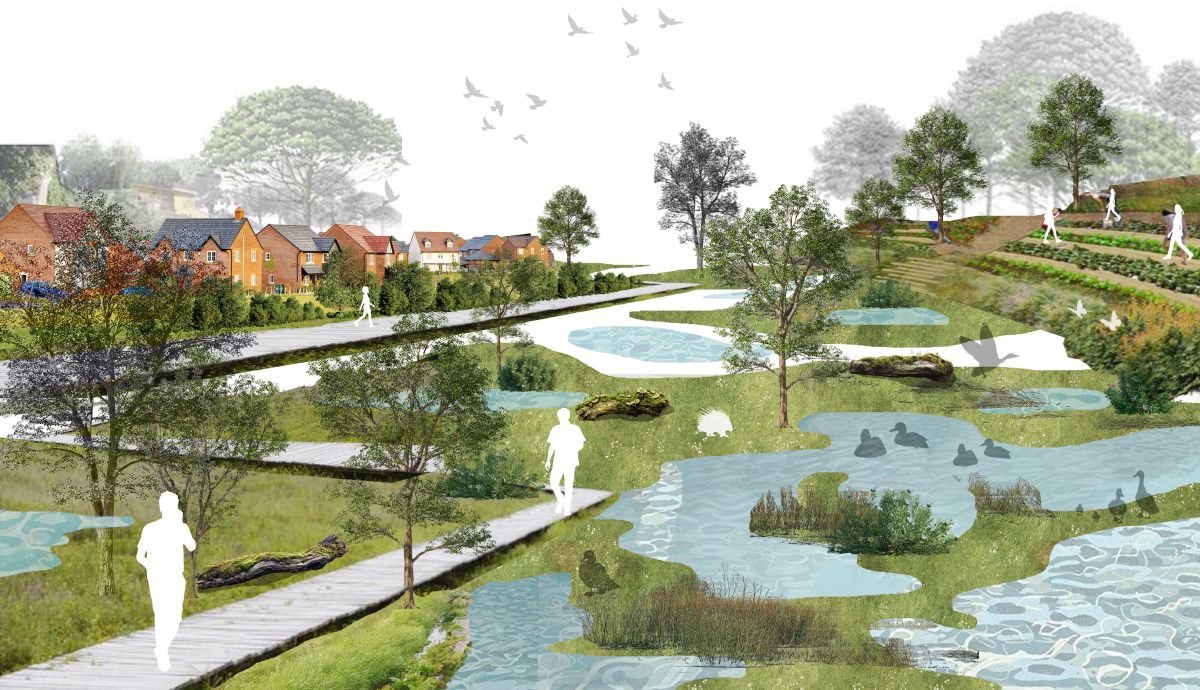Landscape Atelier 1a
The first-year cohort of this year’s MLA programme brought a wealth of global perspectives, professional experience, and diverse landscape cultures, enriching collaboration within the Semester 1 design studio.
The studio brief titled Connect, comprised two distinct projects, each focused-on contrasting yet interconnected sites and objectives, centred around Manchester’s Bridgewater Hall. In Project 1, students worked collaboratively to explore opportunities for human–nature interaction. Engaging with the subjective experience of place, they creatively documented ideas and conducted site surveys, investigating themes such as natural processes, topography, materials, boundaries, and patterns of movement and activity. Working in groups, they developed ephemeral installations before progressing to individual designs, both stages encouraging meaningful engagement with natural phenomena.
Project 2 built upon insights gained in the first project, challenging students to design a park that fosters shared landscape experiences. Through in-depth research, students identified a local community group to serve as the focus of their design, tailoring aims and objectives to meet its specific needs and aspirations.
Throughout both projects, MLA Studio+, led by Sandeep Menon, provided invaluable guidance in developing innovative communication strategies to convey research, design evolution, and final outputs. Employing a wide range of techniques and media, students demonstrated creativity and ingenuity, qualities clearly reflected in the accompanying student work.


